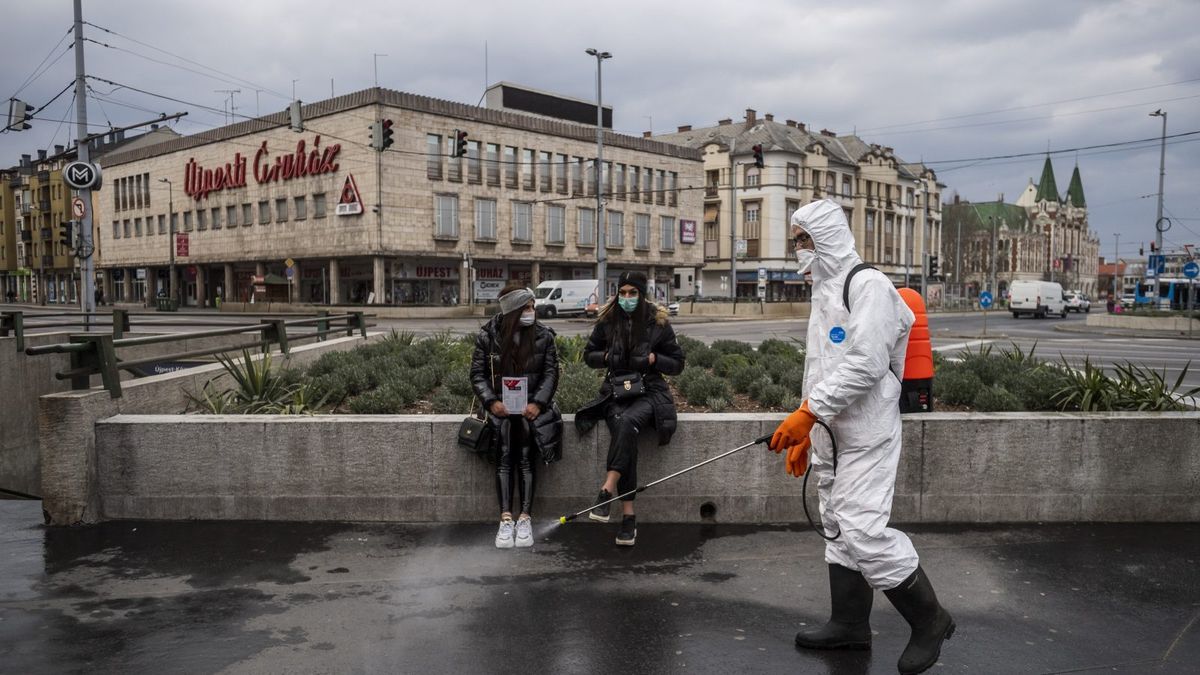Is the coronavirus altering democratic norms?

A few minutes every morning is all you need.
Stay up to date on the world's Headlines and Human Stories. It's fun, it's factual, it's fluff-free.
In Hungary, democracy has seemingly been suspended. Prime Minister Viktor Orbán has long been accused of authoritarian tendencies. Spurred on by global fears, the Hungarian Parliament has granted Orban authority to rule by decree during the crisis.
This means that the legislative branch no longer serves as a check on the PM’s power. While the law is ostensibly meant to be temporary, there is no official time limit to the new rules. Although Orbán promised to use his new powers “proportionately and rationally,” the leader of the opposition party Peter Jakab argues that the law places Hungarian democracy in ‘quarantine.’
Other countries have also enacted special regulations that would likely be difficult to enforce after the pandemic. Chile has placed the military in charge of overseeing movement within the country for 90 days. Israel has started shutting down courts and surveilling citizens’ cell phone data, while Bolivia and Ethiopia have postponed elections.
Justifiable measures
The European Commission (EC) – self-labeled as the “guardian of the treaty” that governs the bloc’s 27 democracies – has been wary of measures that may exceed liberties during the crisis. “It’s of utmost importance that emergency measures are not at the expense of our fundamental principles and values,” said Ursula von der Leyen, the president of the EC, in a statement.
Other observers suggest that following stricter security measures are necessary to stem the transmission of the virus. Some have lauded what they perceive as China’s thorough measures to fight the virus, where stringent controls and surveillance systems have been implemented in the fight against the virus. They argue that considerations for privacy and freedoms need to be weighed against the obligation to keep people healthy.
“We need to have a framework that would allow companies and public authorities to cooperate, to enable proper response for the public good,” says Mila Romanoff, data and governance lead at the United Nations Global Pulse, a UN program that uses data employed for emergency responses to epidemics. “The challenge is, how much data is enough?” she says.
New threat emerging
According to Fionnuala Ni Aolain, UN special rapporteur on counterterrorism and human rights, one of the political legacies of the virus could be a move towards authoritarianism. “We could have a parallel epidemic of authoritarian and repressive measures following close if not on the heels of a health epidemic,” she says.
Douglas Rutzen, president of the International Center for Not-for-Profit Law (ICNL) in Washington D.C., says that once put in place, emergency decrees are hard to undo. “It’s really easy to construct emergency powers,” he claims. “It’s really difficult to deconstruct them.”
[article_ad]
Have a tip or story? Get in touch with our reporters here!




Comments ()